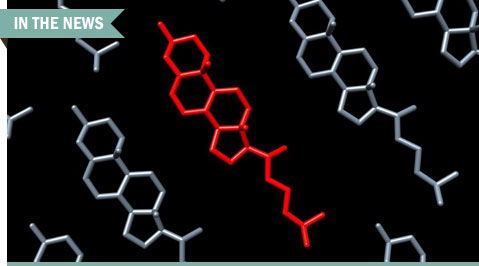 Courtesy Mari DeMarco, PhD
Courtesy Mari DeMarco, PhD
Cholesterol efflux capacity—a measure of cholesterol function—is a better indicator of a person’s cardiovascular risk, and it’s a better target for treatments than long-used standard high-density lipoprotein (HDL) cholesterol measurements, reports a groundbreaking study recently published in The New England Journal of Medicine. Researchers from UT Southwestern Medical Center in Dallas, Emory University in Atlanta, and the Perelman School of Medicine at the University of Pennsylvania in Philadelphia measured cholesterol efflux in more than 3,000 study participants taking part in the Dallas Heart Study.
The results showed a “significant protective relationship between cholesterol efflux and cardiovascular risk,” according to a press release. “The better a person’s cholesterol efflux, the less likely he or she was to suffer a heart attack, stroke, or death from heart disease,” and the association was stronger for cholesterol efflux than for standard HDL measurements.
While HDL was already thought to be the so-called “good” cholesterol, scientists so far have been unable to translate that knowledge into effective therapies. "So now we're looking under the hood, so to speak, and we're realizing that the whole story of what HDL does is not being told by HDL cholesterol levels alone," said Anand Rohatgi, lead study author and assistant professor of internal medicine at UT Southwestern, in a prepared statement. "HDL is very dynamic. It has many functions that are not fully captured by the measurement of static cholesterol levels. The hypothesis has changed from an HDL-cholesterol hypothesis to an HDL-function hypothesis to better capture cardiovascular risk and provide a better target for therapy to reduce that risk."
Figuring out how HDL helps remove cholesterol from fatty plaques that build up on artery walls could help develop a target for reducing the risk of heart disease. "We drew on the strengths of the Dallas Heart Study to thoroughly investigate the relationship between HDL function and cardiovascular disease," Rohatgi said. "What we found was a strong, graded, protective relationship between cholesterol efflux and incidence of cardiovascular events among people who were free from heart disease at baseline testing."